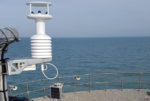Yasmin shares this latest news on behalf of Ormiston Academies Trust. Ed
Ormiston Academies Trust, a leading education charity which runs 38 schools in England, has been awarded almost £97,000 by the Edge Foundation to develop and deliver a maritime economy curriculum project to help meet skills gaps in the industry, it was announced today.
The trust was awarded the grant after submitting an application that demonstrated how the project will support the development of project-based learning and employer engagement, whilst addressing skills shortages in the UK maritime economy.
Working with Cowes Enterprise
It will work with one of its secondary schools, Cowes Enterprise College on the Isle of Wight, with sector employers and with further education providers to build a vocational curriculum for pupils.
Cowes Enterprise College, rated Good by Ofsted, is
How it will work
The curriculum will blend theory in the classroom, embedded in key curriculum subjects, with practical learning linked to the maritime industry. It will develop pupils’ practical skills whilst enabling them to access education and employment on the Island and further afield.
The curriculum will include boat-building, including design and specifications; navigation electronics; celestial navigation; tides; admiralty chart conventions; shipping forecasts; practical boat-handling skills; and attending Cowes Regatta to celebrate the production of boats. The Maritime Skills Alliance and CECAMM, part of the Isle of Wight College, are among the partners who will support on curriculum development.
Maritime Growth Study
The Maritime Growth Study (2015) estimated that 95% of UK imports/exports are transported by sea and that seabourne trade is predicted to double by 2030. A 2018 report for Solent LEP/Maritime UK highlighted the significance of the Solent for the UK.
It said Southampton is the most important UK port for non-EU exports and the leading port for cruises. Solent LEP has also confirmed a skills shortage in the maritime sector. The Department of Transport through its Maritime 2050 strategy wants to offset the skills gap across the sector.
Key players such as IMarEST view schools and employer engagement as vital components in making maritime more appealing, citing “a strong link between the direct influence of industry and career choices made at school”.
Hudson: Can be a game-changer
Nick Hudson, Chief Executive Officer of Ormiston Academies Trust, said:
“We are delighted to have been awarded this funding. This work will address the skills needs of the maritime industry whilst ensuring young people at Cowes Enterprise College are provided with the knowledge and skills needed for the maritime sector.
“For many young people, linking learning to local businesses and seeing the practical application of study in the classroom can be a game-changer. By working with organisations such as the Edge Foundation to lead projects such as this, we are making a real difference to the lives of pupils both within and beyond the classroom.”
Principal: Skills that will last a lifetime
Rachel Kitley, Principal of Cowes Enterprise College, said:
“This is an exciting project for Cowes Enterprise College, and we look forward to developing and then delivering a high-quality vocational curriculum that integrates practical learning with the regional economy.
“We will work in close partnership with local employers and further education providers to ensure we are providing our pupils with not only a breadth of choice at 14, but the kind of skills that will last for a lifetime.”
Barnard: A practical approach to learning
The grant is one of just 11 awarded this year by the independent education charity, Edge, from a total fund of £1million. The Edge Foundation campaigns for a coherent, holistic and socially equitable education system, to enable all young people to fulfil their potential.
Alice Barnard, Chief Executive of Edge, said:
“We hear a lot of lip-service paid to addressing the ubiquitous skills gaps in industry. This project not only employs a practical approach to learning to ensure students are engaged, but equips them with the skills and experience to develop careers in an industry offering opportunities.”
Five funding themes
Applications to the Grant Fund had to address at least two of the following five funding themes:
- Improve the design and delivery of engaging and relevant Careers Education, Information, Advice and Guidance
- Support the development of Project Based Learning (PBL) and associated profound employer engagement
- Support the development of a 14-19 curriculum which integrates both academic and technical/professional subjects
- Support the development of innovative approaches to higher education at levels 4, 5, and 6
- Ways to measure the performance of technical education.
Image: © The Edge





